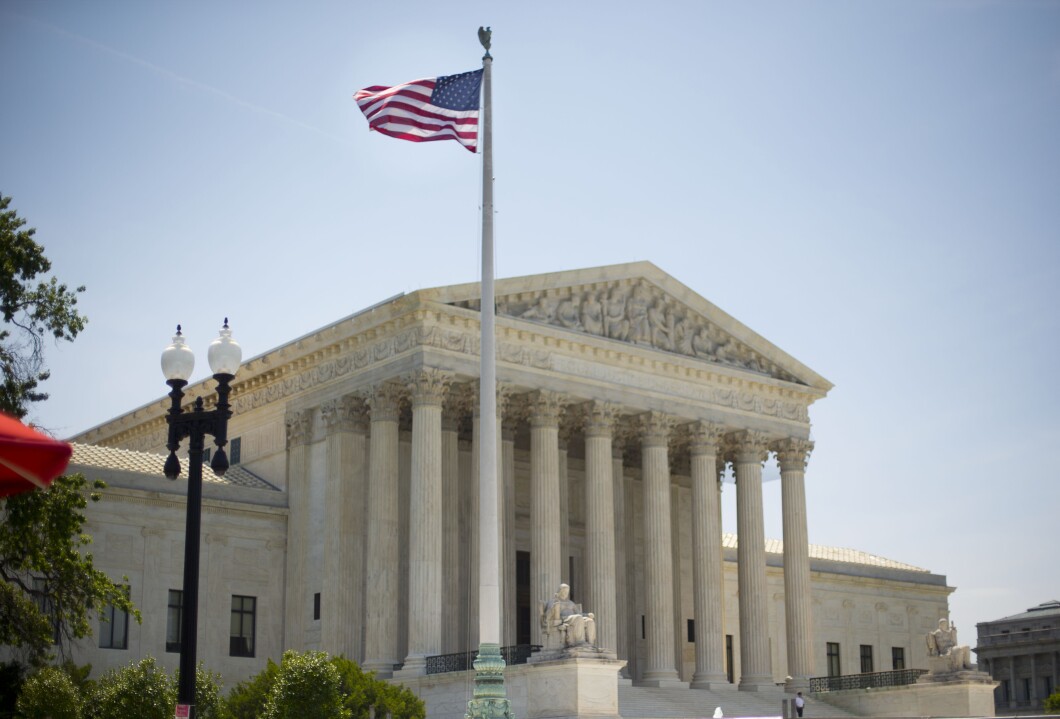
The Supreme Court‘s landmark ruling Thursday striking the use of affirmative action in college admissions opened the door to possible litigation over workplace hiring programs that use race as a significant factor.
Legal experts and parties with interests in maintaining affirmative action have long speculated that the decision in Students for Fair Admissions v. University of North Carolina and Students for Fair Admissions v. Harvard may have far broader impacts on corporate diversity, equity, and inclusion efforts.
UNIVERSAL BASIC INCOME PAYMENTS: HOW EXPERIMENTS SENDING PEOPLE MONEY HAVE WORKED OUT

In a brief filed with the Supreme Court in the Students for Fair Admissions case, employers including General Electric, JetBlue Airways, and Google said undoing affirmative action policies would mean losing “a pipeline of highly qualified future workers and business leaders” and future struggles meeting diversity goals.
“To succeed, these DE&I efforts depend on university admissions programs that lead to graduates educated in racially and ethnically diverse environments,” the businesses added in their brief.
But on Thursday, Chief Justice John Roberts wrote for the high court majority to strike down decades of affirmative action precedent in public and private colleges. The vote broke down 6-3 for the UNC case and 6-2 for the Harvard case due to Justice Ketanji Brown Jackson‘s recusal over her past service on the university board.
“Eliminating racial discrimination means eliminating all of it,” Roberts said, adding, “The student must be treated based on his or her experiences as an individual—not on the basis of race. Many universities have for too long done just the opposite.”
The landmark decision set off sharply different responses between liberal proponents who say affirmative action ensures diversity while opponents say it blatantly discriminates against white and Asian students.
Jonathan Berry, a managing partner at Boyden Gray & Associates, told the Washington Examiner the historic decision “will likely reverberate far beyond academia.”
“In particular, employers should be fully on notice that diversity is not an appropriate justification for race-discriminatory affirmative action in the workplace,” Berry added.
Meanwhile, the Biden administration’s Department of Health and Human Service secretary, Xavier Becerra, lamented the impact the ruling might have on minority groups “at a time when we need more health workers,” according to a statement.
And academic institutions have long claimed that removing affirmative action policies would lead to a decline in workplace diversity. In 2013, Harvard published a study saying removing such policies led to a decrease in workplace diversity compared to states that kept affirmative action programs in place.
Still, there are some limiting factors to the high court’s decision against the decades-old practice. For one, the ruling doesn’t apply to military academies, as stated in a footnote on page 22 of the Supreme Court’s opinion.
Secondly, the majority held that while universities cannot factor one’s race into their admissions process, that rule does not bar applicants from referencing their race as it relates to their personal struggles in life.
Another limiting factor is that the opinion pertains to the race-based admissions policies at public and private universities, meaning challenges against DEI programs in the workplace would need to be litigated separately, though challengers of DEI programs believe the affirmative action ruling helps their case.
Wen Fa, director of legal affairs at the Beacon Center of Tennessee, told the Washington Examiner that civil rights plaintiffs have always sought to challenge “some of these more egregious forms of programs that are labeled as DEI programs” but noted that the college admissions decision “certainly bolsters the principle of equality before the law.”
“And I think there’s even more cases after today’s decision that civil rights plaintiffs can potentially cite and say that racial discrimination is wrong, it’s unconstitutional and it’s illegal,” Fa said.
For months, America First Legal has been working to tackle alleged racial discrimination in the workplace. AFL has filed at least nine Equal Opportunity Commission complaints against big-name companies including BlackRock, Morgan Stanley, McDonald’s, Starbucks, Twilio, Hershey, and Kontoor Brands.
The complaint against BlackRock is targeting the “BlackRock Founders Scholarship, saying it “unlawfully limits, segregates, and/or classifies applicants for employment based on race — a patent violation of Title VII of the Civil Rights Act of 1964,” according to AFL.
CLICK HERE TO READ MORE FROM THE WASHINGTON EXAMINER

“You can’t categorize your employees based on their race in a way that’s going to lead them to be denied job opportunities or provided job opportunities,” Gene Hamilton, vice president and general counsel of AFL, told the Washington Examiner.
Those policies will “cause you to discriminate against employees on the basis of their race,” Gene said, adding that he believes the college admissions ruling will aid AFL’s complaints.






